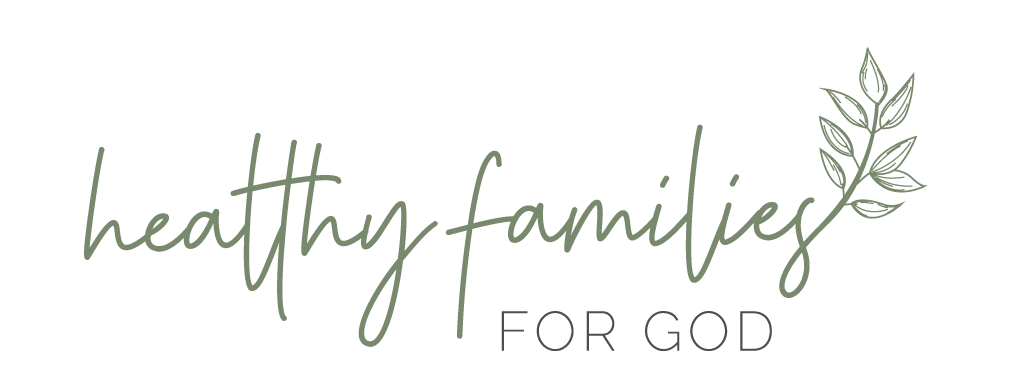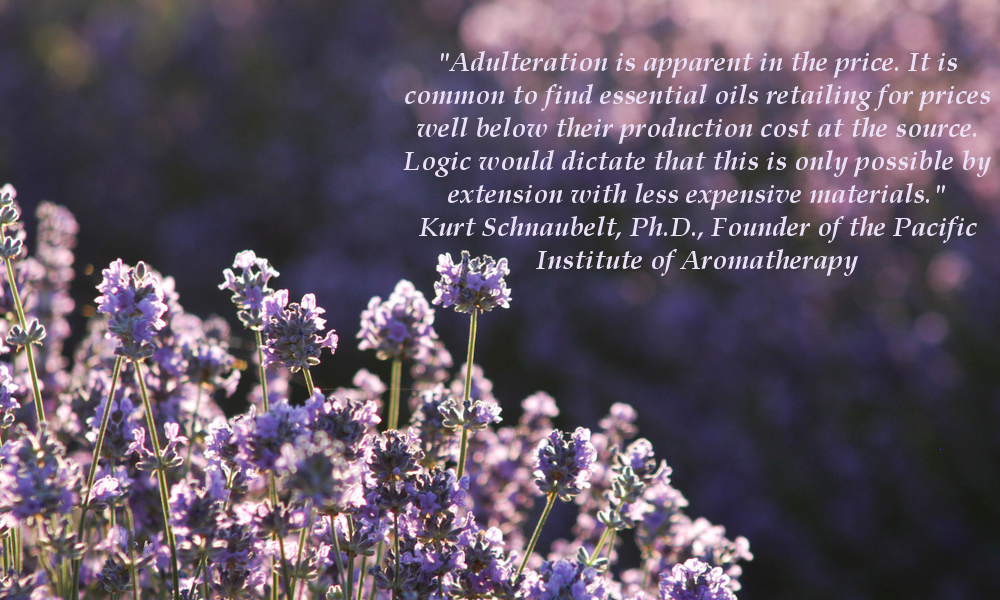The essential oil industry is highly unregulated. You can buy a bottle of essential oil anywhere nowadays and they almost all say "pure" and "natural."
Yet there are more essential oils sold than there are plants produced to make that amount of essential oils, so something is very wrong here.
Why would anyone advertise essential oils as being of mediocre quality or less than the very best? Quite naturally, vendors offer 'only the best' and, as a result, such claims have become utterly meaningless.
(Kurt Schnaubelt, Ph.D., Founder of the Pacific Institute of Aromatherapy)
But why is it important to have essential oils that are pure and genuine?
Essential oils are meant to work holistically to support health. Any adulteration not only minimizes or eliminates the therapeutic properties of the essential oil but also stands to potentially harm the user with its synthetic extenders as well as the problem of inaction (thinking you are treating something holistically when you are, in fact, doing nothing at all).
Many of the extenders in adulterated essential oils contain chemicals that are not safe to use topically or breathe in.
Essential oils can be a powerful tool for staying healthy naturally, but there is so much required in order for an essential oil to be truly therapeutic.
So how can the average consumer know if the essential oils they are using are truly genuine and pure? Here are some of the top ways to tell.
1: Price
$9.00 for 1/2 oz. of "pure, organic" lavender oil or $25.00 for "pure" frankincense?!
Cheap essential oils are like the McDonalds in the EO world. As stated by Dr. Kurt Schnaubelt:
Processed oils are often self-evident by their unrealistically low price, achieved by clever manipulations much like the fast-food burger for ninety-nine cents. Large brokerage firms typically offer essential oils at prices below the original production cost. This is a clear indication of industrial meddling.
In light of this reality, the fretting about oil quality that occurs among competing suppliers int he aromatherapy industry has degenerated into a boring exchange of marketing hype. Naturally every supplier sells 'only the best' quality oils, even if they do originate in big processing warehouses in New York.
Genuine oils are more expensive than their mass-produced cousins. Despite the higher prices for genuine oils, holistic aromatherapy is still economically competitive because very little goes a long way.1
If your essential oil is cheap, you don't even have to continue on to the rest of the article, because you know it's not genuine/pure whether it fits the remaining signs or not!
2: Recommended use on label
Another tell-tale sign of an impure adulterated oil--the words "For aromatherapy use only." This basically means--don't use it topically because it's diluted with alcohol, petrochemicals, and/or other extenders that will irritate the skin. But do you really wanna be breathing that stuff in then either?!! The things we inhale also go into our bloodstream.
3: If You Bought It From Amazon
There is really no way to tell what you are getting when you buy essential oils from Amazon!
4: Emphasis on GC-MS
Some companies use the Gas Chromatography/Mass Spectrum test results to "prove" their essential oils are pure. These companies will often put a lot of emphasis on GC-MS tests.
Unfortunately, these tests alone are not a reliable indicator of purity as brokers have become experts at adulterating essential oils in order to give them GC-MS results that make the oils look pure.
It appears that analysis of essential oils by gas chromatography (and GC-MS) will remain largely irrelevant to the end-consumer and to the retailer, which means the end-user must simply trust in the truthfulness of a certificate of purity issued by an independent laboratory. Such a certificate does not necessarily mean that the essential oils are pure as claimed.
The recent increased emphasis on chromatograms mostly reflects clever playing by a vendor, who knows that the public is more likely to believe something once a machine is involved.1
There are many other ways that GC-MS tests can be a deceptive practice.
5: The Amount of Out-Sourcing
Does the company buy ALL of their essential oils from a third-party broker? Do they own any farms? Do they own any distilleries?
There are many ways that the essential oils can be adulterated and even just lose their therapeutic properties during the many paths to the market.
Purchasing an oil from another supplier who buys from different sources seems less recommendable in light of the many variables that will be different and may influence the [therapeutic] power of the oil. (Dr, Kurt Schnaubelt)
If a company is buying oils from a broker, they can't verify the quality of the plant. Was it the right kind of plant to produce the therapeutic properties? Was it the right grade resin of Frankincense? Was it distilled at low temperatures to preserve the therapeutic constituents? (Not likely.) Was there any adulteration along the way? (Probably.)
The only true way to ensure purity and therapeutic properties of an essential oil is to buy from a company that works directly with the farm and distiller, or even better, HAS their own farms and distillers. And there's only ONE company in the United States that has those.
Click here to read my full post about why that's the only company for me.
In conclusion, I would just say this: If you want cheap essential oils, use another method of supporting your healthy naturally. If you want to experience the full therapeutic benefits of essential oils, don't buy cheap ones. Buy from the best. Your body will thank you.
Blessings of good health,
Sara Jo Poff
Natural Health Practitioner
Healthy Families for God
Using the Scents God Gave You
REF:
- Medical Aromatherapy, Kurt Schnaubelt, Ph.D.





